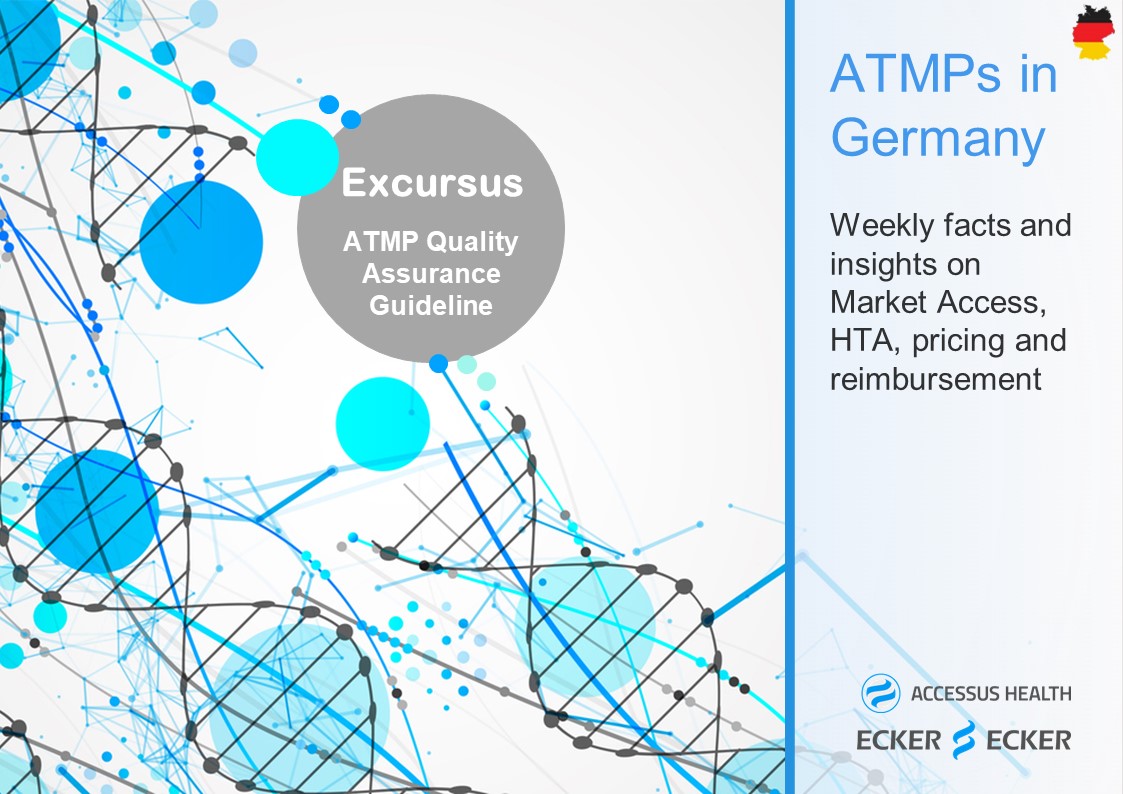ATMPs in Germany - ATMP Quality Assurance Guideline

👉 The ATMP Quality Assurance Guideline restricts the reimbursement of several ATMPs, e. g. CAR-T cell therapies, to hospitals, which demonstrably meet all requirements of this guideline.
ATMPs may be high-risk therapies, which may require specific management of side effects and/or accurate diagnosis for indication of treatment. To ensure high-quality treatment with ATMPs, the German HTA body defines binding quality assurance requirements for ATMPs in the so called “ATMP-Qualitätssicherungs-Richtlinie” (ATMP Quality Assurance Guideline).
This guideline defines minimum requirements and case numbers for hospitals intending to use an ATMP. Requirements exist for CAR-T cell therapies in B-cell neoplasia, Zolgensma in spinal muscular atrophy, Ebvallo in EBV-positive post-transplant lymphomas and gene therapies in hemophilia (like Roctavian and Hemgenix). Requirements for Upstaza in AADC deficiency will come into effect in September 2024. 💭 Of note, the German HTA body also publishes resolutions in cases ATMPs are intentionally not included in the guideline, like Vyjuvek.
🔎 For CAR-T cell therapies, the ATMP Quality Assurance Guideline mandates extensive experience of hospitals. E. g., to use Yescarta for treatment of B-cell lymphomas, hospitals need ≥ 150 patients with B-cell lymphomas and ≥ 120 stem cell transplantations or CAR-T cell therapies within the last 3 years. In addition, the hospital must be able to document previous therapies, side effects, type and duration of response, follow-up therapies and overall survival in the DRST, PRST and EBMT registry. ❗ CAR-T cell therapies in B-cell neoplasms (like Yescarta, Kymriah, Breyanzi and Carvykti) are only reimbursed in hospitals, which meet all requirements of the ATMP Quality Assurance Guideline. Consequently, the ATMP Quality Assurance Guideline restricts the reimbursement and practically the use of these therapies to very few specialized hospitals.
💡 The German HTA body regularly reviews these guidelines to cover further ATMPs and/or indications, even before marketing authorization. For the Market Access strategy and product positioning, it is important to early assess the risk of a restriction by the ATMP Quality Assurance Guideline or the exemption from it. Studying analogs affected by this guideline may help to identify whether the German HTA body might also include (or exclude) the ATMP at issue in the ATMP Quality Assurance Guideline.